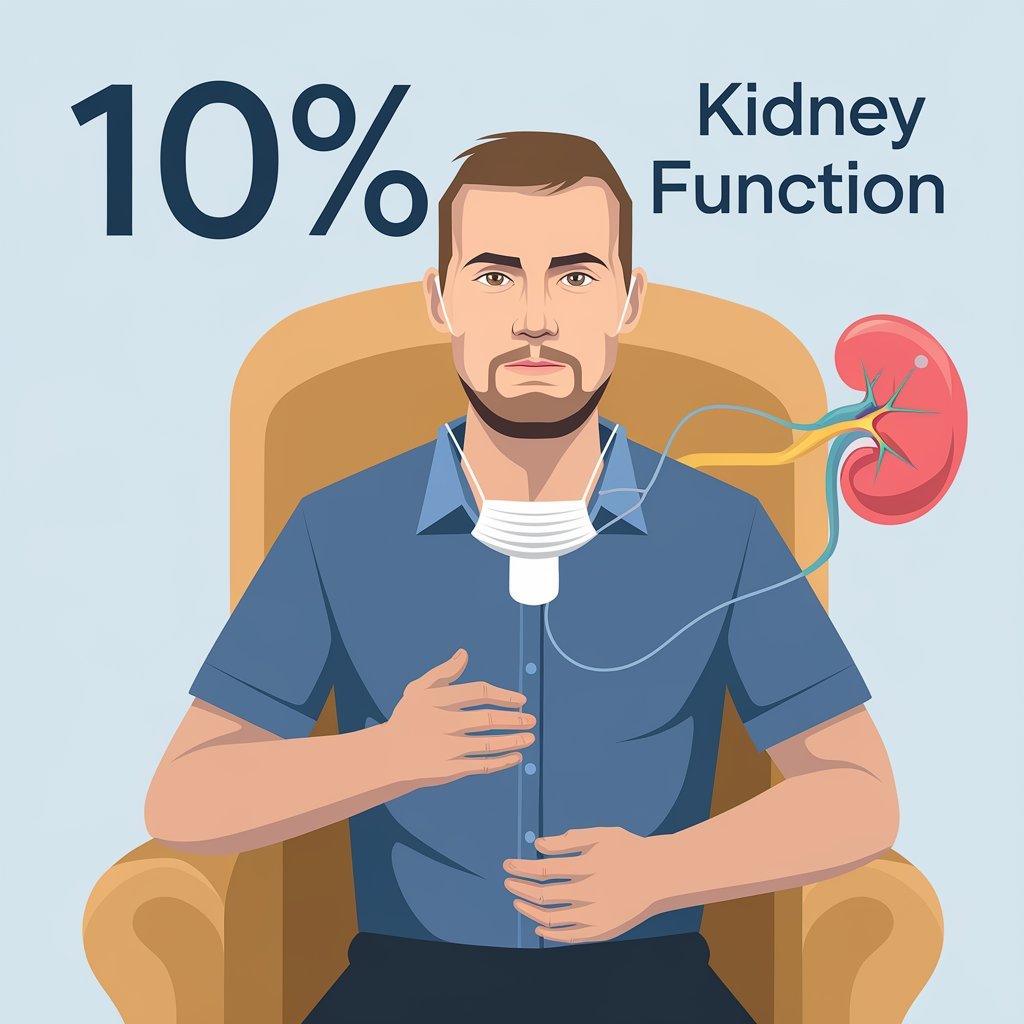Understanding Kidney Function and Survival Without Dialysis
This document explores the implications of having 10% kidney function and the potential duration one can live without dialysis. It aims to provide insights into the body’s adaptation to low kidney function and the factors influencing survival rates in such conditions.
When kidney function drops to 10%, it indicates severe kidney failure, also known as end-stage renal disease (ESRD). At this stage, the kidneys are no longer able to effectively filter waste products and excess fluids from the blood. While some individuals may survive for a limited time without dialysis, the duration can vary significantly based on several factors, including overall health, the presence of other medical conditions, and lifestyle choices.
Factors Influencing Survival Without Dialysis

- Overall Health: The general health of the individual plays a crucial role. Those with fewer comorbidities may have a better chance of surviving longer without dialysis.
- Diet and Fluid Intake: Managing diet and fluid intake can help alleviate some symptoms of kidney failure. A low-protein diet may reduce the buildup of waste products, while careful fluid management can prevent complications like edema.
- Symptoms and Quality of Life: As kidney function declines, symptoms such as fatigue, nausea, and swelling may worsen. The quality of life can significantly impact the decision to pursue dialysis or other treatments.
- Medical Supervision: Regular check-ups with healthcare providers can help monitor the condition and manage symptoms effectively, potentially extending life without dialysis.
- Individual Variability: Each person’s body responds differently to low kidney function. Some may live for weeks or months, while others may experience a more rapid decline.
Conclusion
Living with 10% kidney function without dialysis is a precarious situation that requires careful management and monitoring. While some individuals may survive for a limited time, the prognosis is generally poor without intervention. It is essential for those in this situation to work closely with healthcare professionals to explore all available options and make informed decisions about their health.

